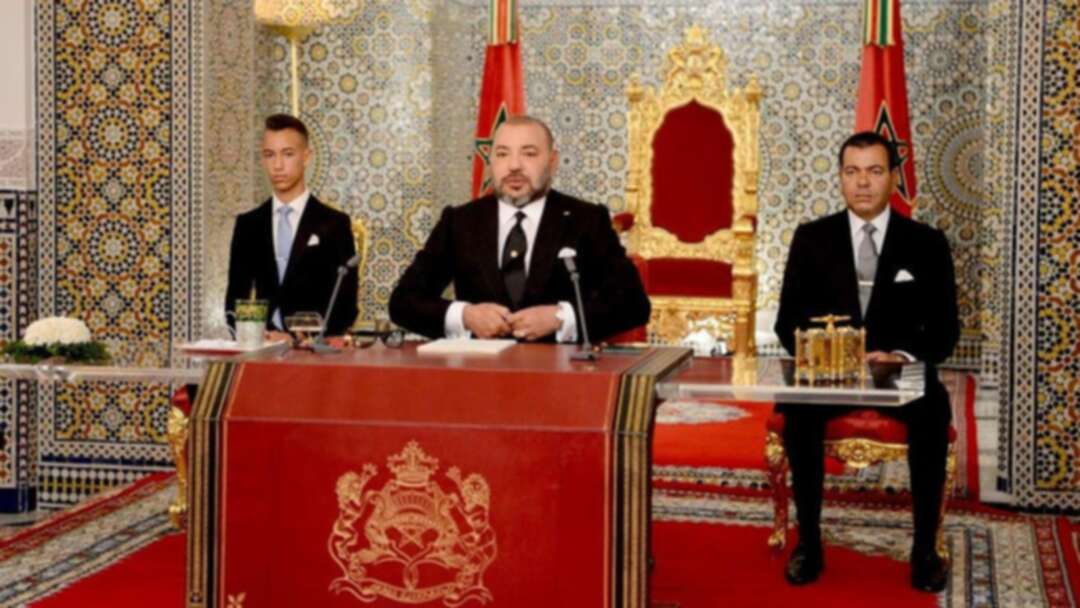-
Moroccan king pardons thousands, including ‘Hirak’ protesters

Morocco’s King Mohammed VI has marked 20 years on the throne by pardoning thousands of prisoners, including some from the “Hirak” protest movement that rocked the country in 2016.
On the eve of the royal anniversary on Tuesday, an official statement announced 4,764 people were to be pardoned including some detained during the months of protests in the long-marginalized northern Rif region.
No further details were given.
The al-Hirak al-Shaabi, or “Popular Movement”, was sparked by the death of a fisherman but soon spiralled into demands for more development and action against corruption and unemployment.
More than 400 protesters are thought to have been arrested and tried in connection with the demonstrations, but no official figures are available. Around 250 of them have previously been pardoned.
On Monday night the king also pledged a government reshuffle and an injection of “new blood” into political and administrative positions to help tackle inequality.
In a speech at his palace in the northern city of Tetouan, the 55-year-old monarch, who succeeded his father Hassan II in 1999, welcomed progress in infrastructure and freedoms in the country but said the efforts had not had “sufficient impact.”
A new constitution passed by a July 2011 referendum strengthened the powers of the prime minister and parliament.
But the king retains overall authority as head of state, chief of the military and the country’s top Islamic authority as well as tight control over key sectors of the economy.
New development model
The king on Monday announced the launch later this year of a committee charged with elaborating a new development model to tackle social inequalities, while also urging a government reshuffle.
The committee will serve as an advisory body to make suggestions to improve reforms in fields such as education, health, agriculture, investment and taxation, said the monarch in a speech marking twenty years of his rule.
The 55-year-old king enumerated some key achievements of his rule, with emphasis on infrastructure developments such as highways, high-speed railway, ports, renewable energy and urban development.
“What undermines this positive result is that the effects of the progress and the achievements made has not, unfortunately, been felt by all segments of the Moroccan society”, he said.
Special emphasis was also laid on the need to open up the economy to foreign investors and revamp the public sector. Such projects and reforms require new leaders in decision-making positions, he said.
“I ask the head of government to submit to me, after the summer break, proposals to fill executive posts in the government and the civil service with high-level national elites chosen on merit and competence”, he said.
The king also reiterated his “policy of the outstretched hand toward Algeria”, invoking the “brotherhood” and “joy” expressed in Morocco after the Algerian team won the African Cup of Nations.
Shared borders have been closed between the two North African neighbors since 1994. The two countries are at loggerheads over a set of issues including the Western Sahara, a disputed territory considered by Morocco as an integral part of its sovereign lands, but also claimed by the Algerian-backed Polisario Front.’ Morocco has largely been insulated from the turmoil that hit North Africa and the Middle East since the Arab Spring uprisings of 2011 although it regularly sees protests over economic and social problems.
The monarchy, under pressure from protesters, in a 2011 constitutional referendum delegated some of its powers to an elected government.
AFP
You May Also Like
Popular Posts
Caricature
BENEFIT Sponsors BuildHer...
- April 23, 2025
BENEFIT, the Kingdom’s innovator and leading company in Fintech and electronic financial transactions service, has sponsored the BuildHer CityHack 2025 Hackathon, a two-day event spearheaded by the College of Engineering and Technology at the Royal University for Women (RUW).
Aimed at secondary school students, the event brought together a distinguished group of academic professionals and technology experts to mentor and inspire young participants.
More than 100 high school students from across the Kingdom of Bahrain took part in the hackathon, which featured an intensive programme of training workshops and hands-on sessions. These activities were tailored to enhance participants’ critical thinking, collaborative problem-solving, and team-building capabilities, while also encouraging the development of practical and sustainable solutions to contemporary challenges using modern technological tools.
BENEFIT’s Chief Executive Mr. Abdulwahed AlJanahi, commented: “Our support for this educational hackathon reflects our long-term strategic vision to nurture the talents of emerging national youth and empower the next generation of accomplished female leaders in technology. By fostering creativity and innovation, we aim to contribute meaningfully to Bahrain’s comprehensive development goals and align with the aspirations outlined in the Kingdom’s Vision 2030—an ambition in which BENEFIT plays a central role.”
Professor Riyadh Yousif Hamzah, President of the Royal University for Women, commented: “This initiative reflects our commitment to advancing women in STEM fields. We're cultivating a generation of creative, solution-driven female leaders who will drive national development. Our partnership with BENEFIT exemplifies the powerful synergy between academia and private sector in supporting educational innovation.”
Hanan Abdulla Hasan, Senior Manager, PR & Communication at BENEFIT, said: “We are honoured to collaborate with RUW in supporting this remarkable technology-focused event. It highlights our commitment to social responsibility, and our ongoing efforts to enhance the digital and innovation capabilities of young Bahraini women and foster their ability to harness technological tools in the service of a smarter, more sustainable future.”
For his part, Dr. Humam ElAgha, Acting Dean of the College of Engineering and Technology at the University, said: “BuildHer CityHack 2025 embodies our hands-on approach to education. By tackling real-world problems through creative thinking and sustainable solutions, we're preparing women to thrive in the knowledge economy – a cornerstone of the University's vision.”
opinion
Report
ads
Newsletter
Subscribe to our mailing list to get the new updates!






















